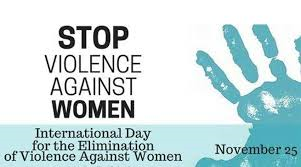Monday marked the anniversary of the International Day for the Elimination of Violence Against Women. Reclaim the Night marches were held around the UK on Saturday – and Marble Arch in London was illuminated in bright orange to mark the day. Profile and awareness raising is so important and marking these days with events and acts of solidarity helps. But concerted action by government is the only thing that will affect any real change.
The World Health Organisation says that as many as one in three women globally will experience violence of a physical or sexual nature in their lifetime. In the UK funding for women’s services has fallen by 50%. Local Authority spending on refuges for victims fell from 31m in 2010 to £23m in 2017.
Conversely levels of sexual violence, domestic violence and femicides has risen by 23-25 per cent a year since the Brexit vote and police-recorded sex offences rose 25%.
And the decline in funding won’t improve if Brexit happens. Cuts to grants and EU initiatives will, obviously, cease. Leading charities such as Women’s Aid warn services are already operating on a shoe strong and others cite an inability to cope with the overwhelming demand and of being forced to turn away.
Last month my colleague Rosie Duffield, who is currently seeking re-election to Parliament delivered a moving speech in which she described the impact and experience of domestic violence; revealing her very personal story. The Domestic Abuse Bill provides a legal definition for all forms of domestic abuse for the first time including financial and controlling, manipulative and other forms of non-physical behaviour. It would place a legal duty on councils to offer secure homes to those fleeing violence.
However, the Bill which was transitioning through Parliament when the election was called, is lost a as result of the election being called. Regardless, a delay in the legislation being implemented successfully will likely continue even if it does pass successfully through Parliament if the infrastructure, and investment in services which will support the legislation is required.
Similarly, The Istanbul Convention has yet to be ratified by the British Government. Labour has pledged to sign the international convention which sets a standard of care and support for domestic abuse victims. The treaty is a historic international effort which has been in place since 2011. The UK Government has signed the convention but not ratified it. It is one of only seven EU member states not to do so.
Failure to ratify the convention is illustrative of a government which is neither progressive or prepared to invest in this area of social inequality or willing to address the very real and significant problem of domestic violence. Meanwhile the Labour manifesto pledges to appoint a Commissioner for Violence Against Women and Girls and promises to establish a national refuge fund to ensure financial stability for rape crisis centres and to hold an independent review into reasons for alarmingly low rape prosecution rates. It’s only efforts like this which will make any significant impact.



